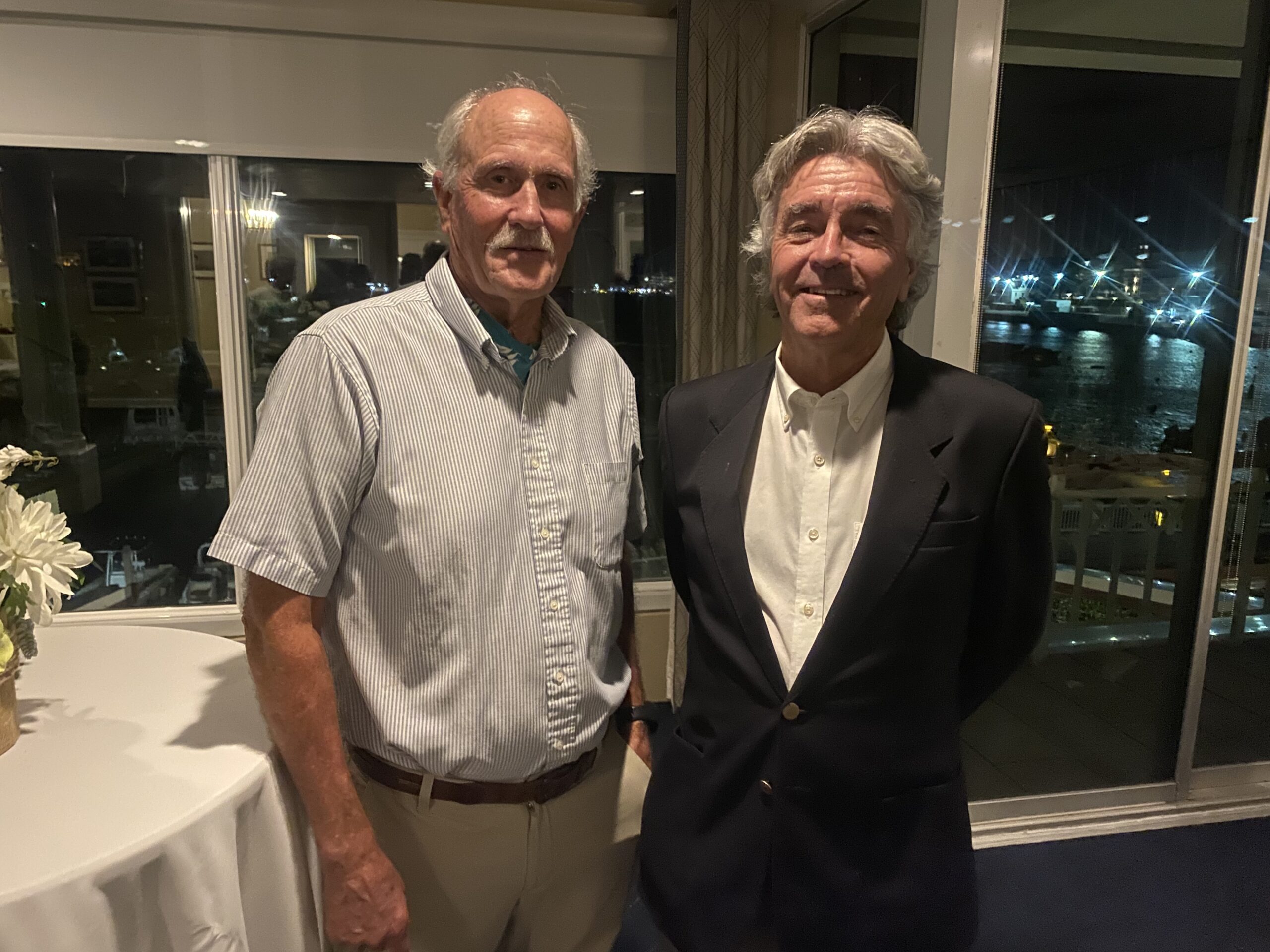Back in June of 1996, Malcolm Kirkland came up with the idea of building a tall ship for Bermuda’s youth. Thus, the concept for the Bermuda Sloop Foundation emerged.
According to Jay Kempe, one of the co-founders of the foundation, it took the team five years to come up with a feasible design that met tall ship code to take children out on the water. Once the design was completed, the Bermuda Sloop Foundation received charitable status and started raising funds.
“ The ship we have ( ‘the Spirit of Bermuda’) is one the team ended up alighting upon, because we saw a painting in the Greenwich Maritime Museum in London that no one had seen, and we modeled our ship on that painting, which was done in 1834,” Mr. Kempe said.
According to him, the team did a tender process for the ship around 2003 and 2004 and put it out to many different boatyards in the U.S., New Zealand and Canada. They eventually chose one in Maine. Two years later, co-founder Alan Burland oversaw the building of the Spirit, which is a massive 88-foot, three-masted sloop-rigged schooner.
She made her maiden voyage to Bermuda 15 years ago and has been here ever since.
“ The ship is such a valuable asset not to just Bermuda’s youth, but to the entire island as a representation of what Bermuda did in the maritime world back in the 18th and 19th centuries and beyond,” Mr. Kempe said.
“ We spend most of our time on education and youth development, but we also aim to foster an understanding of our shared maritime heritage between blacks and whites and to create an icon for the country around which we all can rally around and celebrate.
If Bermuda has produced anything on a world stage that is major, it is the sloop-rigged vessel that can go to windward faster and more effectively than any other vessel.”
The biggest reward of being part of the Bermuda Sloop Foundation for Mr. Kempe is teaching the island’s young people about their ancestors and sailing. Despite this, they have had to change a lot of their programs due to the Coronavirus pandemic.
“ We have not been able to do our five-day voyage or even our overnight ones, but we are able to take students out during the day and we have had to adjust everything,” he said. “ It has been disappointing, challenging and a struggle for the foundation the get the funds to continue to do what we feel is hugely important for our youth. We have lots of support–grassroots, Government, and the business community–but [given the situation that we are in right now] . . . it is hard for us to pitch for the funds needed to keep us going.”
Mr. Burland believes that, in order to do well during this pandemic, the foundation must adapt. Unfortunately, both educational trips which were scheduled during the past two weeks have been cancelled due to the pandemic.
“ We’re committed to navigating through whatever comes our way,” he said. “ The Government schools are planning to go back in soon. We’ll be ready for them when they come and will follow the COVID protocols, whatever they are.”
Similar to Mr. Kempe, Mr. Burland feels that the biggest reward of being a part of the Sloop Foundation is getting to spend time with and educate the island’s young people.
“ The type of learning that we do on ‘the Spirit’ is experiential, and boys in particular respond to that,” he said.
“ Our programs were very carefully crafted, we went to the best to help us and Harvard and Outward Bound were with us when we created these programs.”
“ A ship is the world’s best classroom, because kids are out of their comfort zones and having to pay attention,” Mr. Burland continued. “ We even met with the Ministry of Education and talked about their curriculum and how we would apply it on our ship to make it more real and relevant [for middle schoolers.]”
Mr. Burland can recall one student who went with their class on a transatlantic voyage from Bermuda to the Azores and Portugal. They wanted to be a drug dealer when they grew up. Taking them under his wing, Mr. Burland then let them lead the boat checks and they ended up volunteering to help out one of the engineers when there was a head block on the ship.
“ When we got to Portugal, I asked the captain to put that kid on the helm going up a river with other large boats, ferries, etc.,” Mr. Burland said. “ When we got to the main dock, I told them to call their parents. Later on, the boys parents told me that he was a completely different person on that voyage from when they left Bermuda. Those are the kinds of transformational things that happen on voyages like that.”
“ When students get on the ship, everyone is out of their comfort zones, some get seasick and some don’t, and some guys who do not really excel at school are suddenly loving boating,” Mr. Kempe added. “They’ll furl the jib at a dangerous moment and then realize that they can do this stuff. It creates a new dynamic [between the students] when they get off of the boat. Some of them have gone to the U.K. to learn how to become marine officers.”
———————————————————————————————-Any content which is considered unsuitable, unlawful, or offensive, includes personal details, advertises or promotes products, services or websites, or repeats previous comments will be removed.
User comments posted on this website are solely the views and opinions of the comment writer and are not a representation of or reflection of the opinions of TNN or its staff.
TNN reserves the right to remove, edit or censor any comments.
TNN accepts no liability and will not be held accountable for the comments made by users.

